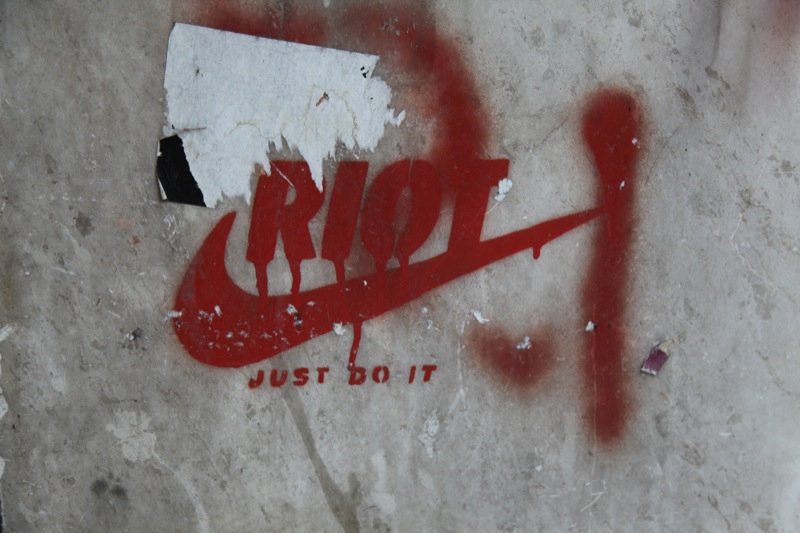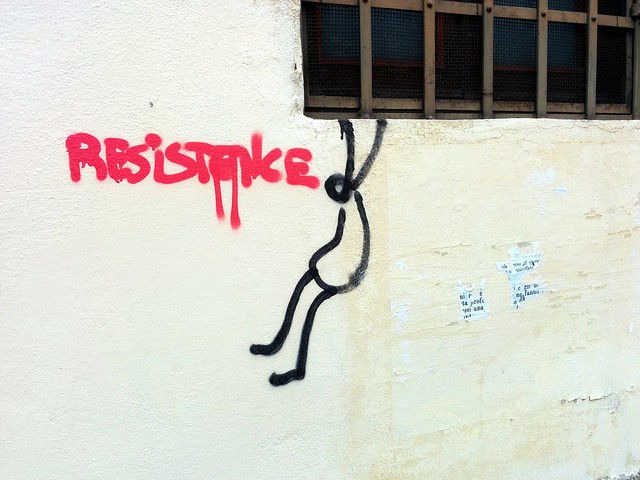I’ve encountered some delightful little creatures called memeballs, and apparently these ones represent different strains of anarchism. You can tell by the colors. My partner showed me the first specimen for reasons that will become obvious immediately:

He had it coming, right? Besides, future industrial paint mixers could lead happy lives. Our protagonist might have done the diskhead jock a favor.

This also seems completely justified and not an overreaction in the slightest.
My resolution for 2017 is to look at more anarchist memes. (Does it matter how well they hew to the actual philosophy? Probably not.) I’ll get my partner to curate them for me, since I can’t stand 4chan myself.
Jokes aside, I do think that memes are important. Both in the original Richard Dawkins sense — the meme as a knowledge unit that reproduces — and in the “humorous captioned image” sense. RIP Harambe.
I don’t know much about their impact in other countries, but memes were important to the US election. “Meme magic” is truly potent — Tara Isabella Burton wrote a great article about this. Reality is a mutual social creation.
What remains to be seen is whether the mainstream can harness meme magic to fight the insurgent fringes, or whether their efforts will remain consigned to /r/FellowKids.
¯\_(ツ)_/¯ tfw asymmetric information warfare is a feature, not a bug
“Strange dueling subcultures and their own narratives, folk beliefs, superstitious techno-animism, language-games — to the extent that any kind of ‘database culture’ can be called a narrative as opposed to simply just a collection of memetic primitives — have taken control of the means (perhaps now memes) of knowledge production.” — Adam Elkus






